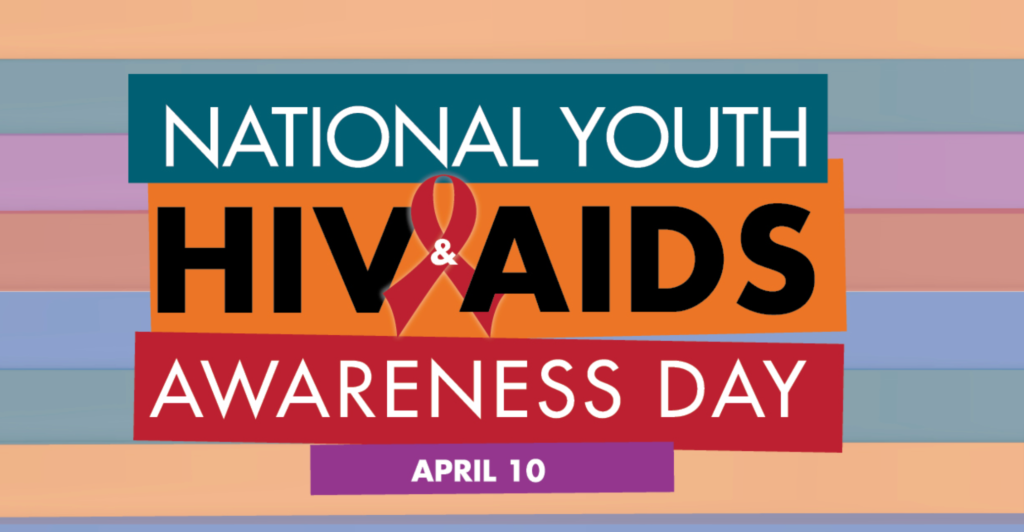National Youth HIV/AIDS Awareness Day is observed on April 10th every year in the United States. This day is an opportunity to raise awareness about the impact of HIV/AIDS on young people, and to encourage them to get tested, know their status, and take steps to protect themselves and others.
The day was first observed in 2013, and it is organized by Advocates for Youth, a non-profit organization that focuses on promoting sexual health and rights for young people. The theme of the day varies from year to year, but it generally focuses on issues that are relevant to young people, such as access to testing and treatment, prevention methods, and reducing stigma and discrimination.
Young people are disproportionately affected by HIV/AIDS, and they often face barriers to accessing information and services related to sexual health. National Youth HIV/AIDS Awareness Day provides an opportunity to address these issues and to empower young people to take control of their sexual health and well-being.
History
National Youth HIV/AIDS Awareness Day was first observed on April 10, 2013, in the United States. The day was established by Advocates for Youth, a non-profit organization that aims to promote sexual health and rights for young people.
The day was created in response to the fact that young people, particularly those aged 13-24, are disproportionately affected by HIV/AIDS. According to the Centres for Disease Control and Prevention (CDC), youth aged 13-24 accounted for an estimated 21% of all new HIV diagnoses in the United States in 2019, despite representing only 7% of the population.
National Youth HIV/AIDS Awareness Day aims to raise awareness about the impact of HIV/AIDS on young people and to encourage them to take action to protect themselves and others. The day also aims to reduce stigma and discrimination surrounding HIV/AIDS, promote HIV testing and treatment, and increase access to prevention methods such as condoms and pre-exposure prophylaxis (Prep).
Since its establishment in 2013, National Youth HIV/AIDS Awareness Day has been observed every year on April 10th, with events and activities organized by Advocates for Youth and other organizations across the United States. The day serves as an important opportunity to raise awareness about HIV/AIDS and to empower young people to take control of their sexual health and well-being.
National Youth HIV/AIDS Awareness Day Theme 2023
Each year, Advocates for Youth, the organization that coordinates the day, chooses a different theme to guide the day’s activities and events. These themes typically focus on issues that are particularly relevant to young people, such as HIV testing, prevention methods, and reducing stigma and discrimination.
For example, in 2021, the theme for National Youth HIV/AIDS Awareness Day was “My Body, My Health, My Power,” which emphasized the importance of empowering young people to take control of their sexual health and well-being. In previous years, themes have included “Engage, Educate, empower” and “Prevention is Power.” These themes serve as a rallying cry to raise awareness, educate, and empower young people to take action to protect themselves and their communities from HIV/AIDS.
The theme for NYHAAD 2023 is Promoting HIV testing, Prevention and treatment, and stopping HIV stigma.
Precautionary steps to reduce the risk of getting HIV/AIDS
There are several precautionary steps you can take to reduce your risk of getting HIV/AIDS:
- Practice safe sex: Use condoms consistently and correctly during sexual intercourse. This can greatly reduce the risk of HIV transmission, as well as other sexually transmitted infections (STIs).
- Get tested:If you are sexually active, getting tested regularly for HIV and other STIs is important. Knowing your status can help you take steps to protect yourself and your partners.
- Avoid sharing needles:If you use drugs, avoid sharing needles or other injection equipment with others. This can greatly reduce the risk of HIV transmission.
- Consider Prep:Pre-exposure prophylaxis (Prep) is a daily medication that can reduce the risk of HIV transmission by up to 99%. Talk to your healthcare provider to see if Prep is right for you.
- Treatment as prevention:If you are living with HIV, getting on antiretroviral therapy (ART) as soon as possible and maintaining an undetectable viral load can greatly reduce the risk of transmitting HIV to others.
- Support safe blood and organ donation:Blood and organ donors are screened for HIV, but it’s important to make sure that the screening process is rigorous and up to date to prevent HIV transmission through transfusions or transplants.
Remember, HIV/AIDS is a preventable and manageable condition. By taking these steps, you can protect yourself and others from HIV/AIDS and help to reduce the stigma and discrimination surrounding the condition.

